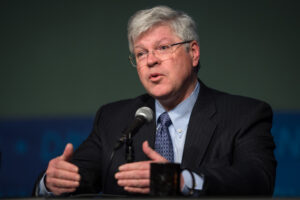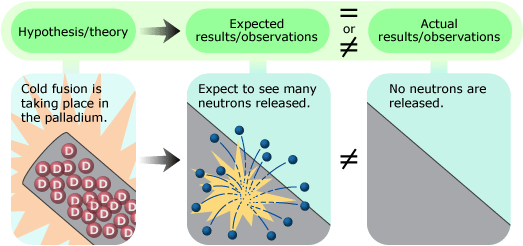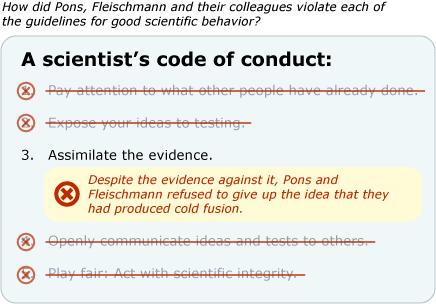
In a last ditch effort to validate the cold fusion results, fellow University of Utah professor Michael Salamon was allowed into Pons’ lab to conduct experiments searching for neutrons coming from Pons and Fleischmann’s own fusion cells. If any experiment could be sure to replicate the conditions of the original, this would be it. During his five-week long test, Salamon was unable to detect any neutrons.
Pons tried to cast doubt on these results by claiming that the cells were not producing excess heat (and hence, that fusion was not going on) during those five weeks, except during a two-hour period that happened to coincide with a power outage. However, one of Salamon’s instruments was still able to collect data on neutrons during the outage. Not surprisingly, no spike in neutrons was observed. Pons even went so far as to attempt to censure Salamon’s data by threatening legal action if Salamon did not voluntarily retract his report. Such attempts to control information are a severe violation of scientific ethics and present an obstacle to scientific progress.
Despite all the evidence against them — conflict with established theory, problems with the original experiments, multiple failed replication attempts, and even tests suggesting that the original experiments had produced no fusion — Pons and Fleischmann refused to adjust their hypothesis about fusion occurring in palladium and, in this way, broke with standards for good scientific behavior. Though scientists are expected to be open-minded about new ideas, when multiple lines of evidence accumulate against them, even the most intriguing hypotheses must be abandoned.


